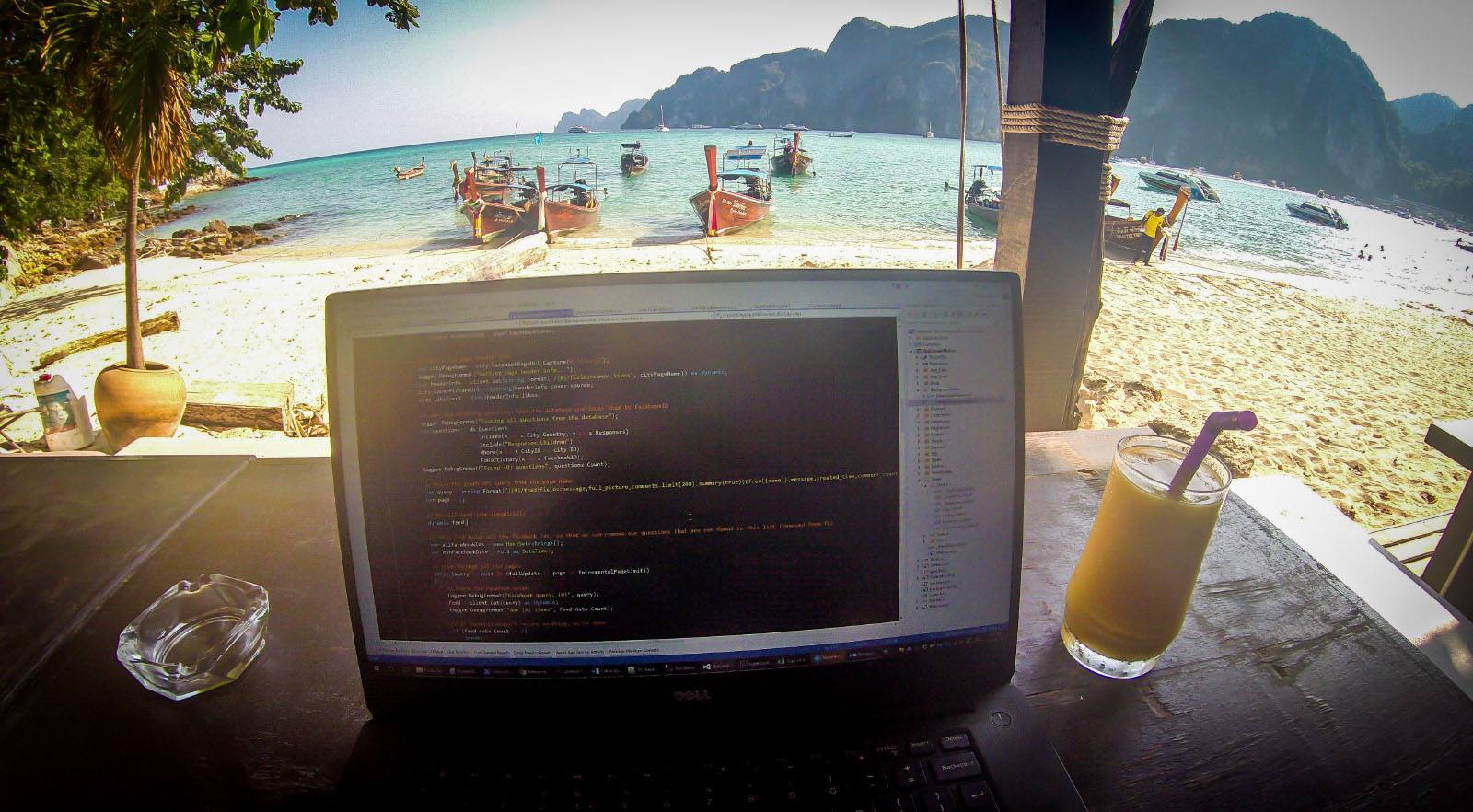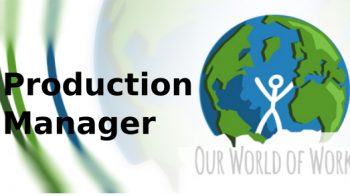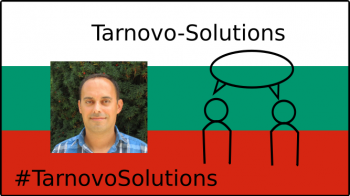
![]()
Job Title:
Nomad Software Engineer
One Sentence To Describe Work Role:
Developing websites and applications, for my clients or my own projects.
Number Of Years Dedicated To This Field Of Work or Lifestyle:
12
Category Of Work:
Employment – Paid Work
Country / Area of Work:
Worldwide
Industry:
Web
Type:
Employment
![]()
Key Skills For The Job:
Software development (programming) requires many problem solving skills. Usually you’ll start by analysing the client’s needs (the problem they’re trying to solve). Then you’ll split it into manageable chunks, and use logic and critical thinking to come up with the best solution.
Good communication skills are also very important, as clients usually aren’t familiar with the technical aspects of your job, and you need to talk to them in terms they can understand.
Additionally, it is key to always be willing to learn, as software development is a very fast evolving field, with new technologies coming up regularly, and current ones deprecating (becoming obsolete) quickly.
Vital Key Skill:
The differentiating factor between you and your competitors is often going to be how good of a relationship you have with your client, or your prospect.
Software developers are known to be introverted, nerdy and unable to communicate properly with non-technical people. If you’re personable and have good social skills, your prospects will instantly have a better connection with you and be more like you to chose to work with you instead of your competitors.
Having a large general culture outside of your technical expertise is also of great value. If your client is in the marketing business and you know or thing or two about it, you’ll make a much better impression.

Your Personal Experience Of Entering This Role:
I am partly self taught, and also have formal education. I started programming when I was in junior high school, just for fun. Later, I took a Master’s Degree in Computer Science. After that, I learnt many new technologies by myself. You have to keep learning at the time in this career.
Tips For Undertaking This Work:
Software development is a very large field. Pick one thing and get really good at it before expanding your options. For example, you could start with front-end web development (which is the development of the visible part of a website, the interface), then move on to back-end development (the logic, the storage of data, the processes…). From there, you could try your hand at mobile applications development.
Future Progression Or Developments:
I think there are 2 routes that a junior software development can take. Those who prefer the technical aspect of the job, can evolve to a Lead Developer, managing maybe a couple of Junior Developers in a small team. From there, they can become a Software Architect (architecting large solutions, that will be implemented by potentially large development teams) or to CTO (Chief Technical Officer), making all the technical decisions in the company.
Those who prefer the management aspect of the job can evolve to Project Manager, managing a small development team and liaising with customers. Then, there is the possibility of becoming a Program Manager, overseeing a group of projects.
![]()
I think that one mistake I made when I was younger, when working as an employee, was not realizing the value of what I was creating. I wish that in my early jobs I had gotten more in contact with the clients, to see how the software I as building was helping their business and their profits. This would hopefully have helped me later when I started my freelance career, and made the very common mistake of undercharging.

![]()
What Are The ‘tools of the trade’ Used Daily:
My programming language of choice is C# (part of the .NET Framework). I spend a lot of time in my code editor: Visual Studio. But a good part of my time is also spent communicating with clients (by email, on Skype or on Slack), and managing projects on Trello.
A Typical Day’s Duties:
I will start my typical day by checking that all systems are running smoothly. I will check that all backups are properly taken, check the logs and a few key stats (like traffic) for anything abnormal. Then I might write code for a new feature or fix a bug that a client just reported. I will exchange a few emails, and maybe organize a call with a prospect to discuss a new project. At the end of the day, I might publish an update to a live website.
Is Travelling A Regularly Part Of This Work:
Since I work remotely (from home or a co-working space), I have the freedom to travel as much as I want. My job doesn’t require it, but it permits it. I am writing this from Thailand, where I’m staying a couple of months. Before coming here, I was working in Egypt for 3 months. I typically visit a few countries per year and stay between 1 and 3 months in each of them. I am what some people call a “digital nomad”.
Weekly Working Hours:
Full Time
Type Of Hours Arrangement:
Flexible Based On Your Own Needs
![]()
The Best Thing About The Work You Do:
Programmers are very much in demand, so it’s always easy to find some work. And since the market demand and supply is in your favour, it is also reasonably easy to make a good living.
Your Least Favorite Thing About The Work You Do:
I love my job, but sometimes I wish it didn’t require me to sit for hours at a time in front of a computer.
Any Duties You Hadn’t Anticipated Prior To Undertaking The Work:
I imagined that a developer would spend most of their time writing code. In reality, when you’re self employed, a lot of time is spent on management and admin. Organizing your time, keeping track of your to-do list, quoting, invoicing, etc. all take a lot of time.

![]()
The Top Perks Of The Work:
The top perk has to be the flexibility that the job provides. I can work from anywhere, mostly on my own schedule I want (but I still have some deadlines to meet). And most of the time, I am free to take a project I like, or to pass on it if it seems uninteresting.
Other Work In The Same Sector:
There are many specialties in software development. You could be developing websites, mobile apps, video games, artificial intelligences, desktop software, or embedded code in self driving cars.![]()
Additional Info You Wish To Share:
Working for clients is certainly a fine job, that already has all the perks I mentioned above. But I think the holy grail, to be even more flexible and independant, is to build your own product. For example, your own mobile app that you sell on app stores, or an online service that makes money through advertising, affiliation, or monthly subscriptions. On top of the added flexibility (you work on your own terms!), this also lets you decorrelate your revenue from the amount of hours you work. Currently I’m splitting my time between client work and my own projects, the latest of which is a website to learn Bulgarian online. (https://www.bulgaro.io)
Details of what my small company does, and our portfolio, can be found here: https://consulting.tribway.com/en
Where People Can Visit For More Details On Your Work:
https://consulting.tribway.com/en





One Reply to “Nomad Software Engineer”
Comments are closed.